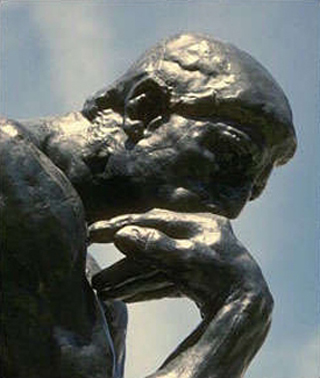
"The Thinker," Auguste Rodin. (Photograph by Prof. Lera Boroditsky.)
Instructor(s)
Prof. Josh Tenenbaum
Prof. Lera Boroditsky
MIT Course Number
9.69
As Taught In
Spring 2003
Level
Undergraduate / Graduate
Translated Versions
Course Description
Course Features
Course Description
Advances in cognitive science have resolved, clarified, and sometimes complicated some of the great questions of Western philosophy: what is the structure of the world and how do we come to know it; does everyone represent the world the same way; what is the best way for us to act in the world. Specific topics include color, objects, number, categories, similarity, inductive inference, space, time, causality, reasoning, decision-making, morality and consciousness. Readings and discussion include a brief philosophical history of each topic and focus on advances in cognitive and developmental psychology, computation, neuroscience, and related fields. At least one subject in cognitive science, psychology, philosophy, linguistics, or artificial intelligence is required. An additional project is required for graduate credit.


